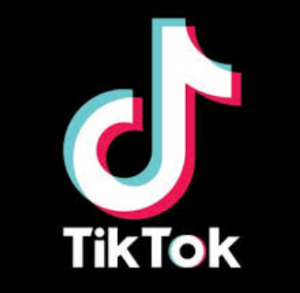TikTok
TikTok is the newest viral app that’s been expanding in popularity over the past couple of years since its creation in September 2016. The concept of the app is for users to release short videos up to 60 seconds long. The app encourages users to make short creative content for other people to view. The app has been downloaded over 1.5 billion times and has 500 million active users per month[1]. In addition to this, 69% of TikToks users span from ages 16 to 24 years old[2]. The app is targeting a younger audience in order to achieve its success.
Contents
How it Started
The origin of the app dates back to 2014 with the creation of Musical.ly, Musical.ly was an app created for people to post videos of themselves lip syncing to various songs and share them with other people. The app grew in fame reaching 60 million active users before it was bought out. Almost all users on the app were from the United States, the app did not have a large international outreach. However, in 2016 Musical.ly was acquired to a company called ByteDance who later changed the name of the app to TikTok and included more freedom in video creation as opposed to be limited to lip syncing.
ByteDance
ByteDance is a company based in Beijing created by Zhang Yiming in 2012[3]. One of its first apps created, Toutiao, is one of the most popular sites to retrieve news in all of China. Chinese tech companies such as ByteDance benefit since they are able to spread their apps throughout China, but also have outreach that spreads across the world. This is in contrast to companies such as Google that are banned from use in China. Moreover, being that all of ByteDance’s apps are free for use, the company receives almost all of its revenue from advertising. That being said, ByteDances goal for the creation of TikTok was to target a young audience since young audiences have a higher capacity for long term use and often create the newest most viral trends.
The Ethics of TikTok
Ethics of Surveillance
In addition to the unethical behavior being executed by the company through the practice of targeting kids in order to gain ad revenue, the app also tracks the audio and browsing data every single one of its users[4]. Not only does this action address unethical means of surveillance, but it also brings into question the transparency of the company, not disclosing the true purpose of what they use all this data for. To quote Chaim Gartenberg in his article "Reddit CEO says TikTok is ‘fundamentally parasitic,’", "TikTok parent company ByteDance claims that its fingerprinting techniques are used to identify malicious browser behavior, but Eberl notes his skepticism given that the website still appears to work perfectly fine when those scripts are disabled"[5]. If the website is able to work perfectly fine even without fingerprinting it brings many concerns to what else the company could be doing with the information? Considering that it is not needed it shows a true breach of privacy for all of the users on the app. When discussing this it is important to mention Steve Mann's paper "Veillance and Reciprocal Transparency:Surveillance versus Sousveillance, AR Glass,Lifeglogging, and Wearable Computing" to determine that ByteDances position is unethical. At the moment ByteDance is is executing a propertarian model of veillance, since the app is their property they are deciding to survey every action that happens on it. However, this is an unethical use of power for the company. To quote Mann "Thus there is no reason to assume that those in high places(e.g. priests, politicians, police, etc.) are flawless and should thus be able to watch over us without us being able to watch back! Otherwise, the one-sided nature of surveillance allows it to, under certain circumstances, become the very “ladder” that facilitates this high-level corruption"[6].
Ethics of targeting a younger audience
With TikTok’s goal being to target younger audiences it begs the question if it is an ethical practice to target people who are more easily fooled by advertisements. Kids are impressionable at a young age and easy to manipulate. While TikTok may claim their goal is to target a young audience for the sake of having a long term customer, one could argue that there are ulterior motives involved with that decision. TikTok is practicing unethical behavior by taking advantage of a highly impressionable group of people.
References
- ↑ https://99firms.com/blog/tiktok-statistics/#gref
- ↑ https://digiday.com/media/everything-you-need-to-know-about-bytedance-the-company-behind-tiktok/
- ↑ https://digiday.com/media/everything-you-need-to-know-about-bytedance-the-company-behind-tiktok/
- ↑ https://www.theverge.com/2020/2/27/21155845/reddit-ceo-steve-huffman-tiktok-privacy-concerns-spyware-fingerprinting-tracking-users
- ↑ https://www.theverge.com/2020/2/27/21155845/reddit-ceo-steve-huffman-tiktok-privacy-concerns-spyware-fingerprinting-tracking-users
- ↑ http://wearcam.org/veillance/part1.pdf

